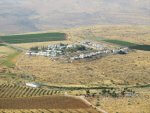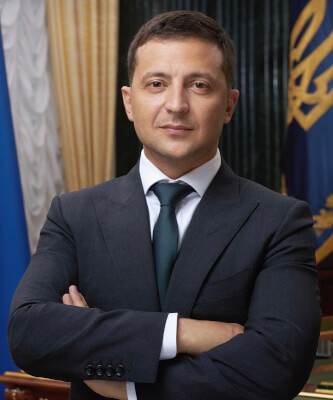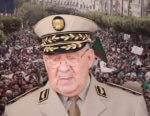Don’t have to be a Trump supporter to cheer his media fight
Trump is right. The news media is the enemy of America. The mainstream American news media has been the single greatest threat to the civil rights of Arabs and Muslims — YES Muslims — over the years. I know how confusing it must be to Arabs and Muslims to confront some of his bad policies, but the fight against the news media is one we MUST support
By Ray Hanania
When I was growing up, every newspaper story, every movie, and every TV show portrayed Arabs as the villains, terrorists and threats to the American way of life.
Activists in other ethnic groups would counter that the media did that also to them. But I would point out one major difference: in demonizing the other ethnic and minority groups, the media ALSO portrayed their positives.
They had voices in the news media. Arabs and Muslims did not.
That’s why I got into journalism.
As an Arab American, even though I disagree with many of President Trump’s policies, I can’t help but to wholeheartedly support his war on American journalism because the mainstream news media is the primary enabler and fuel for anti-Arab and anti-Muslim racism in America.
It is so ironic and phony to me that the media is now pretending that they support civil rights for Muslims in America because I know that in that fake media embrace, the media still hates those Muslims who are Arab and who are Palestinian, or those who criticize Israel’s injustices.
This week, Trump upped the ante in his war with the media, blocking the participation of the New York Times, CNN and Politico from a press briefing, criticizing their coverage as being biased. I know firsthand that the media is biased and has been for years and I am supporting Trump’s war on the media because it is the only way to force the news media to end their racism and biased practices against issues and topics and minorities they dislike.
The news media may dislike Trump, but they dislike Arabs and Palestinians even more. So I won’t lose sight of the fact that Trump is not my primary enemy in this war. The real enemy is the longstanding bias and racism that exists in the mainstream American news media, and that the news media refuses to address. Trump is right in declaring that the media is the enemy of America, because they are!
A media awareness
While serving in the U.S. Military during the Vietnam War, I was sitting one night watching a debate between an Israel spokesman and an Arab spokesman on national TV. It was in 1973 and the two were arguing over the latest Arab-Israeli war.
As I watched I noticed that the Israeli spokesman looked American, sounded American, and not only spoke English but he spoke “American,” using all of the iconic phrases that were a part of the everyday American vernacular. He connected with the Americans who were watching the debate. He was defending America and portraying Israel as America’s friend, blaming the Arabs and Palestinians for the conflict.
In contrast, the Arab spokesman had a heavy accent and you could barely understand what he was saying. He was unshaven, and had a “five-day growth” which was common for many Arabs and Muslims, but was “different” for Americans in the audience. He wore casual clothes, not a sharp looking suit, and he was yelling at the Israeli, the moderator and even the audience, blaming America for all of the Middle East’s problems.
He was blaming the Americans who were watching the show.
It hit me that maybe one of “our” problems was that we didn’t understand communications. So I determined that night that instead of becoming a doctor, I would become a “journalist.”
When I was honorably discharged — entering the Illinois National Guard for the next 10 years working in the medical field — I went back to college on the GI Bill and studied journalism and politics under a great professor, Milton Rakove.
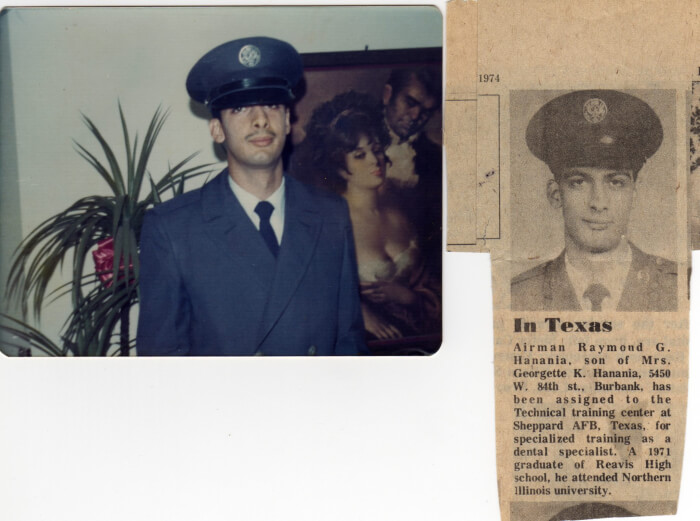
I started writing letters to the editors at Time Magazine and Newsweek Magazine challenging assertions int heir reporting that showcased Arab and Palestinian violence and downplayed violence by Israel. When the Arabs did bad, it was front page news. When the Israelis did bad, there was nary a word written. And if there was something written, it was buried in the news media, played down, relegated to unimportance.
Worse was the obvious fact that the media reporters were inserting their pro-Israel opinions and partisanship in the manner in which they wrote their “news” stories. They weren’t objective at all and they didn’t care. Because the news media didn’t care. For every 500 columns defending Israel, you might find one or two defending the Palestinians.
That form of exclusion is a form of media bias that is the most pernicious, and most effective. If they can keep you out of the “view” then you didn’t exist. And if you didn’t exist, you didn’t deserve a voice.
I was determined to give Arabs a voice in America. After all, I earned it. Had I not stepped up to volunteer to serve during America’s war in Vietnam to do my patriotic duty? As aVietnam Era veteran — they chose not to send me to the front lines but I was trained and ready to serve overseas.
Confronting the news media, demanding fairness
Every week at home I would pick up the local newspapers and read column after column after column by writers who attacked and viciously demonized Arabs and Palestinians. They called us murderers, killers, baby killers, and “anti-American.”
And each week I would hand-write a letter responding to the columns and deliver it to the editor of one of the biggest newspapers in our community, the weekly Southtown Economist Newspaper, demanding that it be run in response to the one-sided column bias.
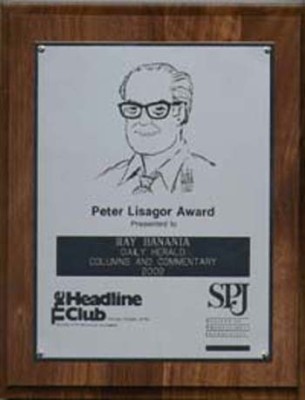
My argument was fundamentally a professional journalism argument: Opinion commentary is not a violation of journalism principles. But only presenting one side, constantly, is a fundamental violation of journalism ethics. It was the media’s job to ensure that the two major sides to a debate on ANY issue were represented.
But in the case of nearly every major newspaper and magazine in America, it wasn’t being followed when the issue came to the Middle East, Arabs or Palestinians.
Every week I would write a response to the weekly diatribes, tirades and invectives by the columnists whose columns would constantly attack Arabs, Muslims and Palestinians. Each week I would deliver it to the newspaper. They never ran, until one day, the editor picked a lengthy column of 800 words I turned in and he published it.
Weeks later, the editor called me in an offered me a writing job as a freelancer. I was already publishing an American Arab tabloid newspaper — using the monthly GI Bill stipend to pay for its printing while I went to school. I scrapped the newspaper and took the part time job offer, covering the local courts. I covered Chicago politics, City Hall and state politics, as well as local Arab community events.

Clearly he was a brilliant editor. One condition was I had to stop writing the rebuttals to the columnists, no matter how strongly I felt. I thought, OK, this was the door to change, and I did. I realized he was hiring me to get me off his back.
Within a year, he hired me full-time, paying me $15 more a week than a female colleague at the paper who had been there several years.
Fighting from inside the journalism industry
The news media wasn’t just anti-Arab, anti-Muslim and anti-Palestinians. It had other serious issues reflecting the practices of nearly every American business when it came to the civil rights of others, too.
At the newspaper, I would constantly be bullied by a few reporters and by one editor in particular who had strong views on Israel. They happened to be Jewish and it was their right to have whatever views they wanted. They would write something defending Israel all the time — it was big news in journalism at the time and the media was pushing the analysis and reporting on the front page. But, every time I suggested maybe writing the “other side,” I would get hard pushback. They said it would be unprofessional, biased and unethical for me to write anything promoting my pro-Palestinian heritage. The upper management editors would agree.
It’s one reason why in 1978, when the publisher asked if anyone wanted to go to City Hall to create a beat there for the newspaper, I was the only reporter who volunteered. Although I had been covering Chicago City politics, I wanted to get out of that newsroom environment. There were so many great reporters there but it only took a few to make life miserable.
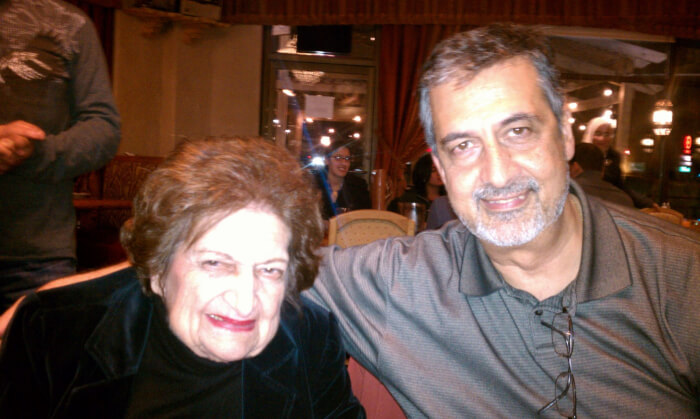
When I left to join the Chicago Sun-Times in 1985, the managing editor who hired me asked me if I would have problems with the fact that my four colleagues on a column I was being asked to contribute to were Jewish? I said no, but would they have a problem with me?
Again, the Sun-Times constantly published pro-Israel columns, rarely running a column in response or that offered the other side to defend Arabs, Muslims and Palestinians, but more importantly, to criticize Israel’s policies.
When I pushed back, they pushed back harder.
It wasn’t ALL of the reporters or editors. It was those who were aggressive int heir support of Israel. They sent me to City Hall where I continued my writing on local politics, always pushing back with opportunities to present the other side that was AWOL from the mainstream news media ‘s coverage.
Finally, I heard from a reporter that the newspaper was putting together a team of reporters, who were all Jewish, to travel to Israel to do their annual Special Edition Insert on Israel’s anniversary. I went right to the managing editor and the publisher and said, “I am the only Palestinian American writing full time at a major American newspaper. I wanted to go on the trip and provide coverage of the other side, the Palestinians.”
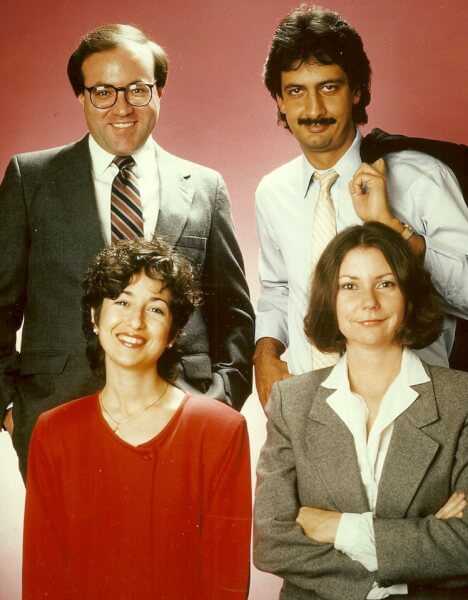
I was told point blank, no! They argued that the point of the insert wasn’t journalism, but to make money. It was an effective advertising vehicle. Businesses that were pro-Israel would advertise in it and that was a good thing. It was about the money, they insisted.
I responded, “Shouldn’t it be about journalism? Professional journalism?”
I badgered them for weeks until the team left. Finally, one of the editors, who was not Jewish, said, if I wanted to go on my own and write about “Palestine” — the way he said it was like he was spitting something out of his mouth — and “jeopardize my career,” go ahead and do it on your own time. Take vacation time and do whatever you wanted.
I did and spent two weeks in the West Bank with relatives during the first Intifada. That’s right, I had relatives and contacts there and the other reporters did not. They were led on tours and did interviews arranged by Israel’s government.
When I came back, I turned in five feature length stories on the suffering of the Palestinians. They were objective, factual and fairly written. They were not political attacks against Israel, but portrayals of what Palestinians were going through.
The managing editor and publisher were enraged. They were most upset with two of the stories where I pointed out that many of the Palestinians being arrested and shot by Israeli soldiers were Christians in Bethlehem, Beit Jala, Beit Sahour (the so-called Christian triangle) and in Jerusalem, Nazareth and in Taybeh, an all Christian village in the West Bank.
For nearly six weeks were argued about the columns and one day they got a call from a reporter at the Chicago Tribune who didn’t care about the issue of fairness but though it newsworthy that the Sun-Times was censoring the only Palestinian journalist in the country in the middle of one of the biggest stories in the Middle East, the Palestinian Intifada.
The publisher called me — something that was very unusual for beat reporters covering City Hall. He told me he told the Tribune the Sun-Times was going to run the story and he blamed me for the “leak.” I denied it because it was not true. It never occurred to me that any journalist at any competing newspaper would ever sympathize with the hurdles faced by a Palestinian reporter. It made no sense and I didn’t do it.
But he gave me a chilling warning. “You had better watch your step, pal.”
The newspaper ran four of the five articles. The Israeli ambassador’s political representative — who apparently had been given a chance to see the stories — objected to all of them but mostly to one that detailed the heavy censorship Israel imposed on the Palestinian journalists and Palestinian newspapers. It talked about how they had been shot, and how Israel’s censors would use an E-Xacto Knife and cut out paragraphs in stories at the newspaper’s layout room before the papers went to press. The editors left the blank spaces in the copy as a form of protest.
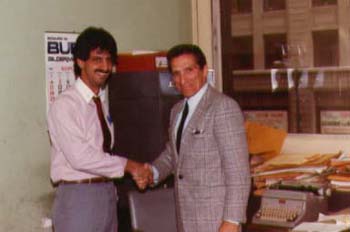
(Israel was arguing that despite the violence, the civil rights of civilians were not being compromised and they were not practicing racism.)
That story was Spiked — journalism for “killed” — and so were any substantive references to “Christians.”
The features ran everyday for four days straight on a full page with a graphic and photo.
The newspaper received hundreds of letters, all from pro-Israel writers complaining that my stories were unfair. They received one letter to the Editor from an Arab reader who praised he newspaper’s fairness.
Two of my biggest supporters at the newspaper were Jewish. (It wasn’t about being Jewish that was the problem. The publisher and Managing Editor were not Jewish, at the time.) They submitted the features to the Pulitzer Prize Committee as entries from the Sun-Times. They never made it into the Pulitzer finals.

There were many editors and reporters I worked with at the Sun-Times who were professional and fair and who did their jobs the right way. But they’re not the problem. It’s the ones who don’t. Sadly, the news media doesn’t call out those in its ranks who are biased, unless their bias and unjournalistic practices are suddenly “caught” and exposed by others.
The confrontation with the newspaper’s new managing editor, his deputy editor and the new publisher ended my career. I had left the City Hall beat a year before and began a public relationship with a City Hall figure. Although they accepted it knowingly before, now they suddenly had a problem.
In the years that followed, the Sun-Times under the new editorial management, became one of the most vicious, anti-Arab and anti-Muslim newspapers in the country. It’s publisher Conrad Black, who was eventually charged and convicted of federal crimes, was one of the most racist anti-Arab publishers in the country.
But many newspapers who didn’t have racist publishers and editors were just as bad.
The media’s cancer goes far beyond
It isn’t just the news media. The bias may begin there but it nurtures through to other media like Hollywood, the book publishing industry, and television.
Even a TV series like “Andy of Mayberry” included instances of anti-Arab and anti-Muslim racism and stereotypes that were typical of how Americans viewed Arabs and Muslims because of media bias.
An early episode of “Andy of Mayberry” (December, 1960) told the funny story of two little old white-haired White ladies who had snitched on another man who was making gin and whiskey in his home. They passed the information on to Sheriff Taylor and Deputy Fife who quickly went to his home, breaking his gin processor and placing him in their hometown jail.
The punch line was, of course, that the two little, innocent old ladies with the white hair were actually running a gin business of their own. At one point in the show, totally gratuitously, a dark-skinned man walked in with his arms out asking (without speaking) for the ladies to sell him a bottle of their hooch.
They gladly complied, giving him a bottle. Then, they proceeded to talk about the man calling him a “Mohammaden” an early term used to describe Muslims or people who believed in Islam and its Prophet, Muhammad. And one of the little old ladies suggested that “they” loved to drink and could always be depended upon to purchase their secret cache of liquor. The Moslem man, after receiving his bottle, backed out of the room and the scene slowly, bowing with his hands clasped. He had a crazed look on his dark face. His dark eyes were wide open.
No wonder people didn’t like Moslems, or Arabs or, for that matter, anyone who was dark. Why would they put it on the TV if it wasn’t true?
If the news media is not willing to challenge this kind of gratuitous racism, it grows even worse. Imagine if the episode had mocked a Rabbi or Jewish person? It never would have been tolerated.
Worse is that when the media slants its reporting and cast Arabs as being bad, the weight of all that coverage has an impact on society as a whole.
Most Americans get their understanding of the Middle East conflict not from schools or education but from what they learn in the media, newspapers, radio, TV, Hollywood movies and the book industry.

Those who have tried to stand up to the media bias have been attacked, disparaged and demonized like Vanessa Redgrave who won an Oscar in 1978 for her performance in the movie “Julia.” But because she did a documentary on the Palestinians explaining their struggle, she was attacked and demonized by industry leaders like Sidney “Paddy” Chayefsky who produced the racist and anti-Arab film “Network” during the Oscars ceremonies. Click here for more info.
The book “Exodus” and the movie that followed which fictionalized Israel’s birth and the hatred of the Arab World starring actor Paul Newman became the benchmark for American understanding of the conflict. The movie excluded any understanding of the real issues in the conflict.
This media problem can’t be corrected until the news media learns to become accountable and call out those who violate fundamental principles of fairness and objectivity. The media must give the “otherside” — the Palestinians — an equal voice in expressing their views and provide fair and accurate news coverage of the Palestinian, Arab and Muslim community.
But they have had the chance and they have refused.
President Trump has his own issues for taking on the news media. And whether you agree with him or not, his politics is far less important than the greater problem of media industry corruption and bias. Trump is right that the media is the enemy, not just to Americans but to every Arab, Palestinian and Muslim in this country and in the world.
(Ray Hanania is an award winning columnist and author. He covered Chicago City Hall from 1976 through 1992. Email him at rghanania@gmail.com. Get more information on fighting media bias at the website www.BiasedReporting.com.)


- Israelisnipers shooting and killing hospital workers in Gaza - December 11, 2023
- CAIR Condemns Israeli Executions of Wounded, Unarmed Palestinian in West Bank - December 11, 2023
- Arab and Muslim American voters face a “simple choice” between Biden’s inhumanity and Trump’s edgy politics - December 9, 2023
















